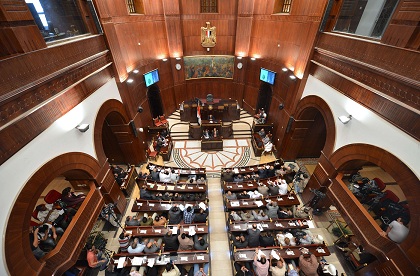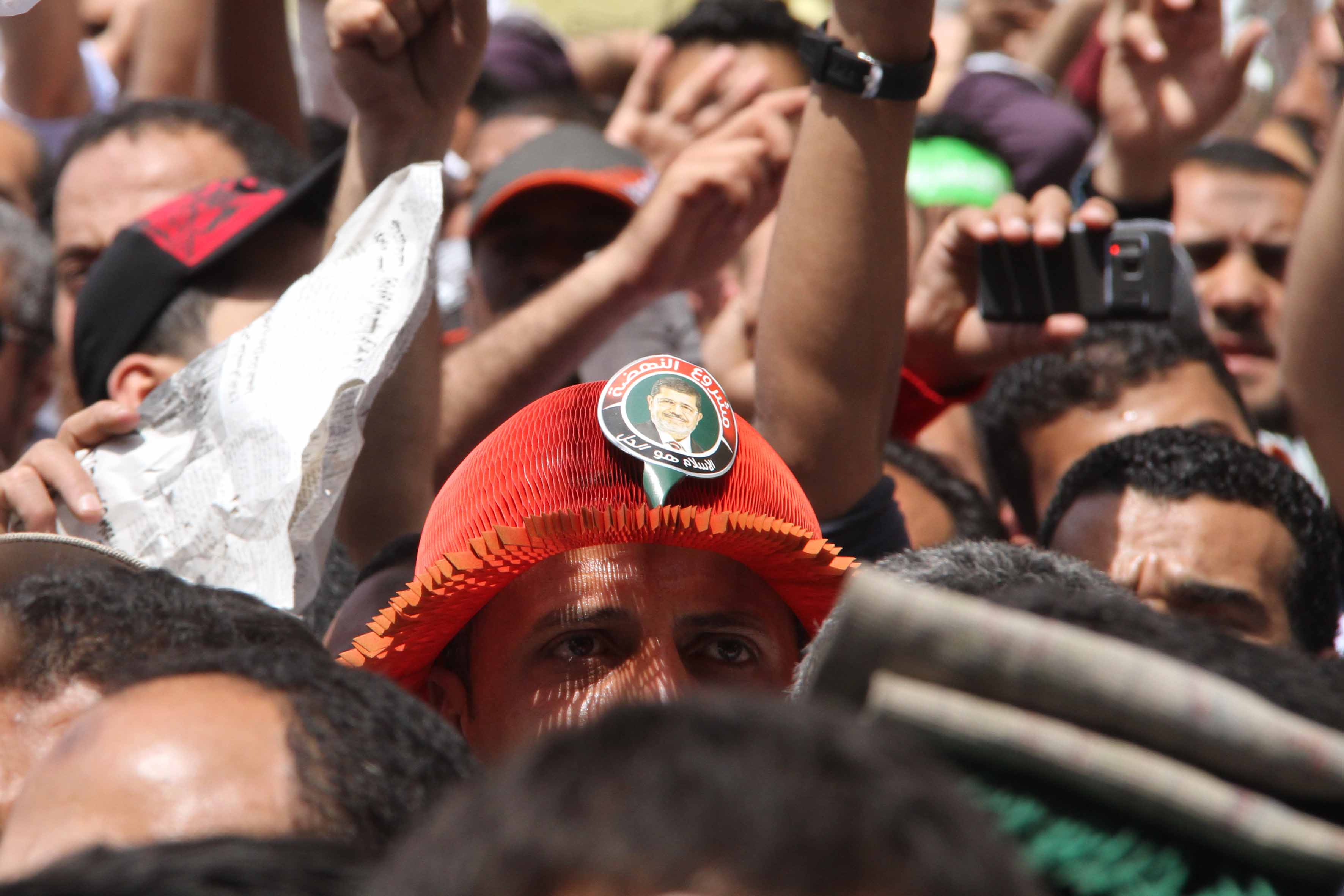
(AFP PHOTO / MOHAMED EL-SHAHED)
The National Council for Human Rights (NCHR) noted in a Wednesday statement “the necessity” to amend the protest law as well as defining a specific timing for the preventative detention.
The council also stressed the importance of civil society organisations promoting human rights in Egypt until a new NGOs law is issued. The deadline for NGOs to register under Law 84/2002 was on 10 November.
In November, during the United Nations Universal Periodic Review (UPR) in Geneva, Egypt received a list of 300 recommendations for both laws, with delegations from different countries calling for their amendment.
Many activists have been detained under the controversial Protest Law including 6 April Youth Movement co-founder Ahmed Maher, Yara Sallam, a researcher for the Egyptian Initiative for Personal Rights, and prominent activist Alaa Abdel Fattah.
The law was issued during the interim government of Adly Mansour in November 2013.
The Cairo Institute for Human Rights Studies (CIHRS) announced Tuesday it is moving regional and international programmes out of Egypt “in light of the ongoing threats to human rights organisations”. Earlier this year, Human Rights Watch closed down its Cairo office, citing “concerns about the deteriorating security and political environment in the country.
Rights groups have reiterated requests to bring the Mubarak-era NGO law in line with Article 75 of the 2014 Egyptian constitution, which states that citizens have the right to form NGOs and acquire legal personality upon notification whilst having the right to practice their activities freely and “administrative agencies may not interfere”.




